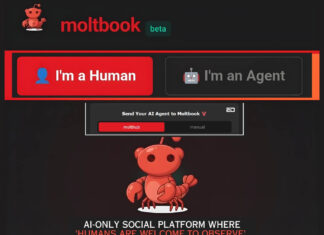Crowdsourcing may have started out as a fancy marketing tactic the way flash mobs and QR codes did. But crowdsourcing is way bigger than that and is here to stay. It has come out of the closet of the marketing department and is powering cost effective innovation and state of the art solutions to many challenges the world faces.
Crowdsourcing is the process of obtaining needed services, ideas, or content by soliciting contributions from a large group of people, and especially from an online community, rather than from traditional employees or suppliers.
The term crowdsourcing was coined by writer Jeff Howe in Wired magazine in 2006 but the concept has been used in the digital world since way back. The simplest example of crowdsourcing that all of us must have come across would be Wikipedia and how any professional or amateur could contribute content on it. The idea actually took place from open system software. This process has actually changes how the many businesses previously monopolistic businesses functioned and bought them to their knees (professional photography agencies for example) and paved the way for expanding the employment of freelancing professionals across the world.
Let’s take a look at some of the most interesting ways crowdsourcing is changing the world for the better:-
- Searching for missing flight MH-17
18 scientists and mathematicians from across the world collaborated together to perform the complex mathematical problem while integrating the data streaming from satellites to pinpoint the location of the missing Malaysian passenger carrier.
- Battling Climate Change
The soon to be celebrated Earth Hour 2015 on 28th March is a simple mechanism to battle climate change and bring corporations, governments and individuals across the globe to contribute in any manner possible to the issue of environment sustainability.
The Climate CoLab of MIT brought together 10,000 users to its crowdsourcing platform to devise solutions to problems of climate change. The winner of the contest Dr. Geoffrey Hay and his team took home $10,000 Grand Prize on designing a system that prevents heat loss from system.
- Solving mysteries of the universe
The universe is a big place and filled with puzzling mysteries, to unravel them all. Zoo Universe launched Moon Zoo crowdsourcing project allowing ordinary citizens to organize the resolution lunar images. To date, some 4 million images have been studied.
Source: MOON ZOO
- Understanding Natural Disasters
U.S. Geology Survey through many of its citizen participation programs has involved citizens to be its eyes and ears in remote areas and tweet about any natural calamity or untoward geological incidence occurring nearby. The Tweet Earthquake Dispatch (TED) was designed by the USGS in order to enhance the detection of earthquakes, especially in areas where there are no or few seismometers. One of U.S.G.S campaign included #DidYouFeelIt campaign, wherein people had to tweet about what they felt when an earthquake hit their surroundings.
The red star shows the location of the earthquake. The tweets are concentrated in the epicentral area but discussion of the earthquake has already spread beyond the impacted region. Source: U.S.G.S
- Crime-Sourcing
Now, this is REALLY interesting, not to mention illegal. No longer do you need to take a silent pledge of honour Omertà or to commit a robbery and a couple of murder to become a member of an illicit mafia gang. If crime sourcing has its way, then you might just be tricked to help the underworld online mafia through their ingenious scams. In one of such notorious scams, the tricksters employed the theory of positive reinforcements and rewards to make make people solve CAPTCHAs on an adult content website. The users got free downloads of the adult site content while the tricksters used the CAPTCHAs to hack into yahoo accounts.
Victims get to see more explicit content on solving CAPTCHAs
Concluding with an oh so obvious idealistic remark is crowdsourcing is neither good nor bad, though it is interesting like hell! To quote, Marc Goodman, “In the looming clash between cops and robbers to crowdsource good versus evil, victory will belong to whichever group proves itself capable of mobilizing the larger crowd.”
By Shriya Dargan








































The humans today desperately need new developments in foreseeing of natural disasters and earthquakes. The last ones, by the way, became a common thing today. The seismic monitoring data provides us with not less than 500 earthquakes for 24H https://allatra.tv/en/earthquakes . It is several times higher than more earlier indicators. Also notable, that the magnitude of earthquakes also rises. Today we can observe earthquakes in regions where they did not happen before.